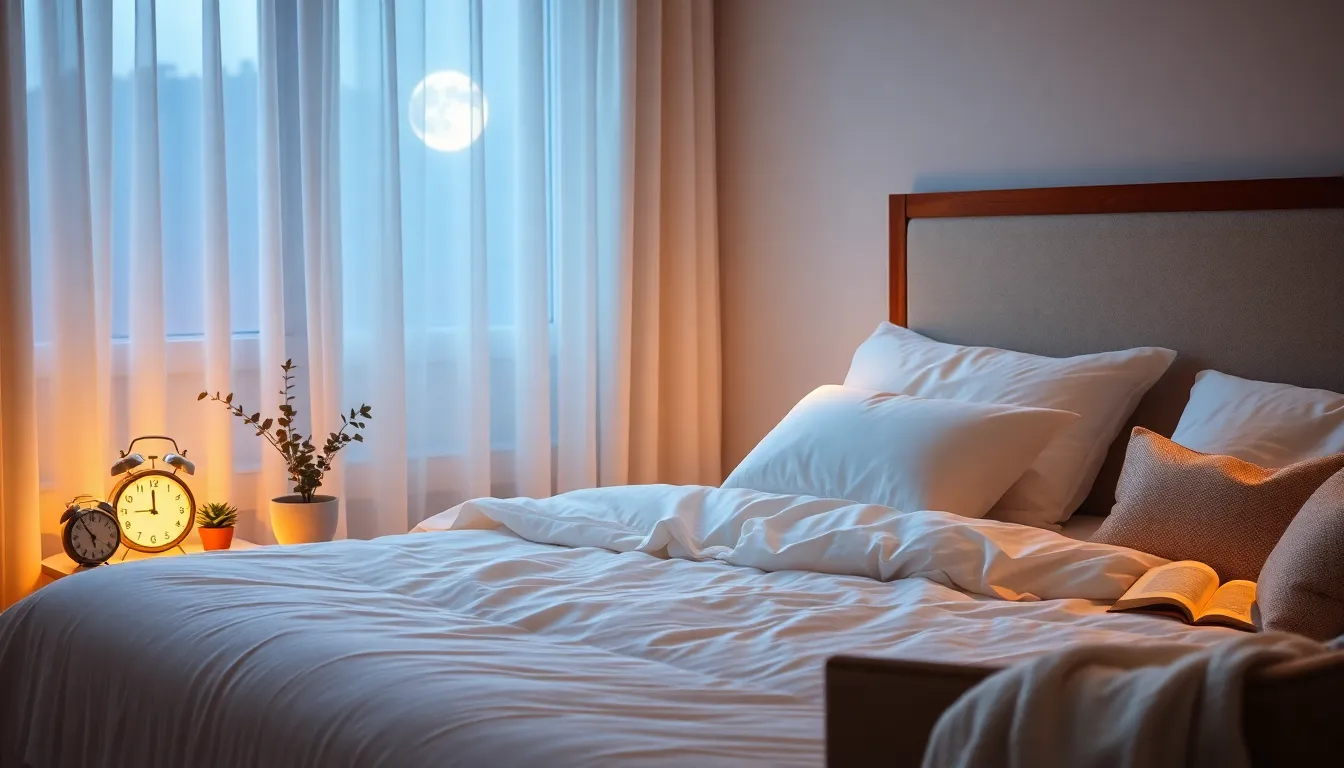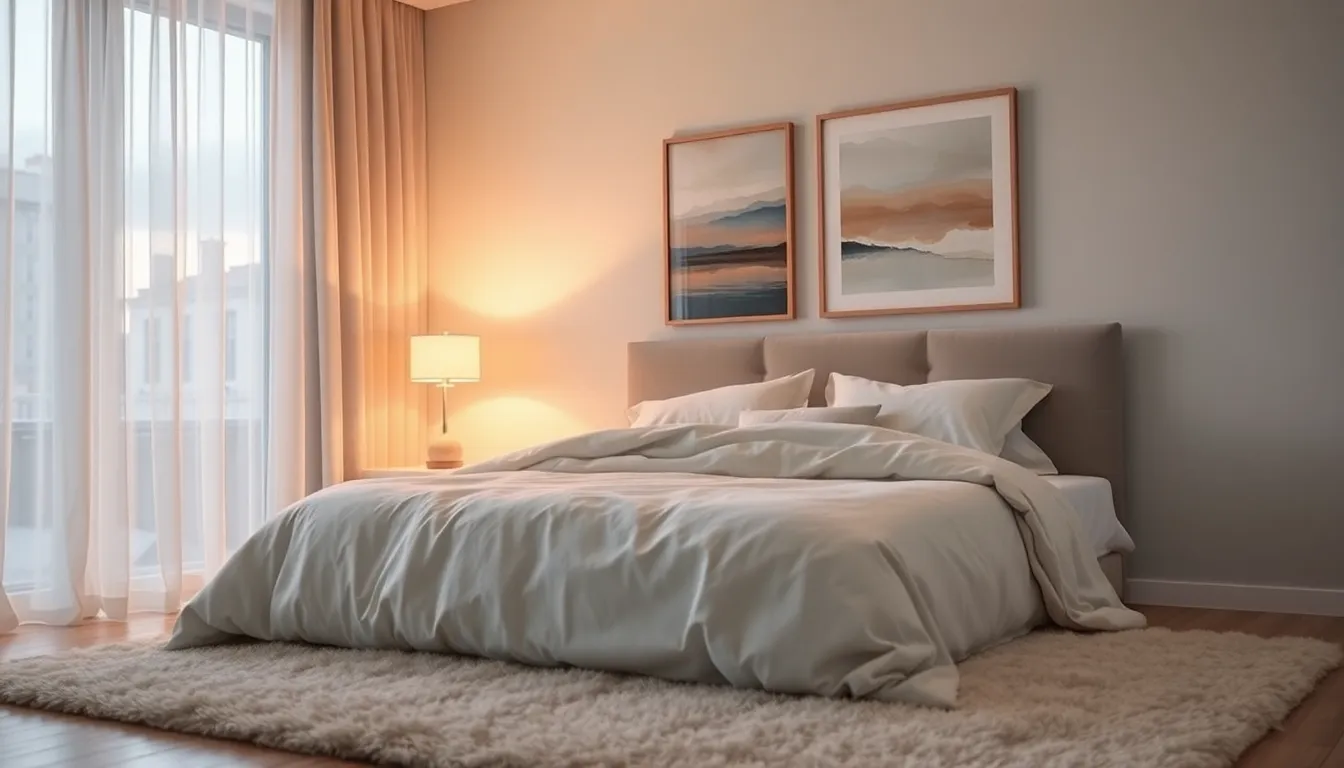Whoever said beauty sleep could be bought clearly hasn’t had a sleepy night in their life. For many, catching those elusive z’s feels more like a game of hide-and-seek. Why do we toss and turn like a burrito on a grill? In this text, we’ll unravel the secrets of restful sleep, giving you the tools to claim your rightful sleep crown. Trust us, well-rested minds not only feel sharper but also function better, so let’s jump into the importance of sleep and how it can transform your nights and days.
Table of Contents
ToggleUnderstanding the Importance of Sleep

Sleep isn’t just a cozy time-out from the day: it’s a fundamental pillar of health. Think of sleep as your body’s nightly reboot process. When the sun sets, it’s not just a signal for bedtime: it’s an invitation to allow your body to engage in some serious healing and rejuvenation.
The Science Behind Sleep Cycles
Every night, the body embarks on a fascinating journey through various sleep cycles, from light sleep to deep sleep and REM (rapid eye movement). Each stage plays a distinct role in restoring the body and mind. During deep sleep, the body repairs tissues and builds bone and muscle. Meanwhile, REM sleep boosts creativity and problem-solving skills, so that wild dream about flying might just have some merit for your waking life. Understanding these cycles can empower individuals to optimize their sleep routines.
How Sleep Affects Overall Health
Lack of sleep can have dire consequences. It’s linked to a plethora of health issues, ranging from weight gain to weakened immunity. Studies show that consistent sleeplessness increases the risk of chronic conditions like diabetes and heart disease. Also, those cozy hours also influence mental health, insufficient sleep can lead to anxiety, depression, and irritability. In short, a sleepy night isn’t merely about feeling rested: it’s about fostering a healthier, happier life.
Creating the Ideal Sleep Environment
The atmosphere where you catch those precious z’s can make or break your chances for a restful night. Transforming your sleep space into a tranquil haven is critical for encouraging relaxation.
Essential Elements for Better Sleep
Consider dimming the lights before bed. Exposure to bright screens can signal the brain to stay alert, so switching off devices and opting for lower light levels can promote melatonin production. Ensure your sleeping space is cool, around 60 to 67 degrees Fahrenheit is optimal for most people. Investing in a quality mattress and comfortable pillows can also make a world of difference. Finally, don’t underestimate the power of silence. Block out any disruptive noises that might encroach on your sleepy night with earplugs or white noise machines.
Techniques to Wind Down Before Bed
Transitioning from a busy day to a sleepy night requires some intentional winding down. Everyone’s techniques may vary, but here are some widely effective methods.
Incorporating Relaxation Techniques
Take a warm bath or shower before bed: the drop in body temperature after can signal to the brain that it’s time to relax. Deep breathing exercises are also effective, try inhaling deeply through your nose for a count of four, holding for four, and exhaling through your mouth for another four.
Mindfulness and Its Role in Sleep Quality
Mindfulness meditation has gained popularity for a reason: it encourages a state of relaxation that can improve sleep quality. Focusing on your breath or visualizing serene settings can quiet a racing mind. Practicing mindfulness regularly can help individuals feel calmer as they prepare to settle in for the night.
Tips for a Consistent Sleep Schedule
A consistent sleep schedule can do wonders for sleeping well. Regular sleep patterns help regulate the body’s internal clock, making it easier to drift off peacefully each night.
Maintaining Healthy Sleep Habits
Try to go to bed and wake up at the same time every day, even on weekends. If late nights have become a bad habit, aim to gradually shift your bedtime earlier by 15 to 30 minutes until you find a schedule that suits your lifestyle. Also, avoid heavy meals and caffeine close to bedtime: these can disrupt your natural ability to doze off.
Identifying and Addressing Sleep Disorders
Even though all efforts, some might still find themselves fumbling in the dark, which could indicate a sleep disorder. Awareness is key to addressing these situations.
Common Sleep Disorders Explained
Sleep disorders such as insomnia, sleep apnea, and restless leg syndrome affect millions. Insomnia causes challenges in falling or staying asleep, while sleep apnea leads to breathing interruptions during sleep. Recognizing symptoms can empower individuals to seek help effectively.
When to Seek Professional Help
If sleepless nights persist after trying various techniques, it may be time to consult a healthcare professional. Persistent fatigue, loud snoring, or trouble concentrating may signal an underlying issue that deserves attention.



